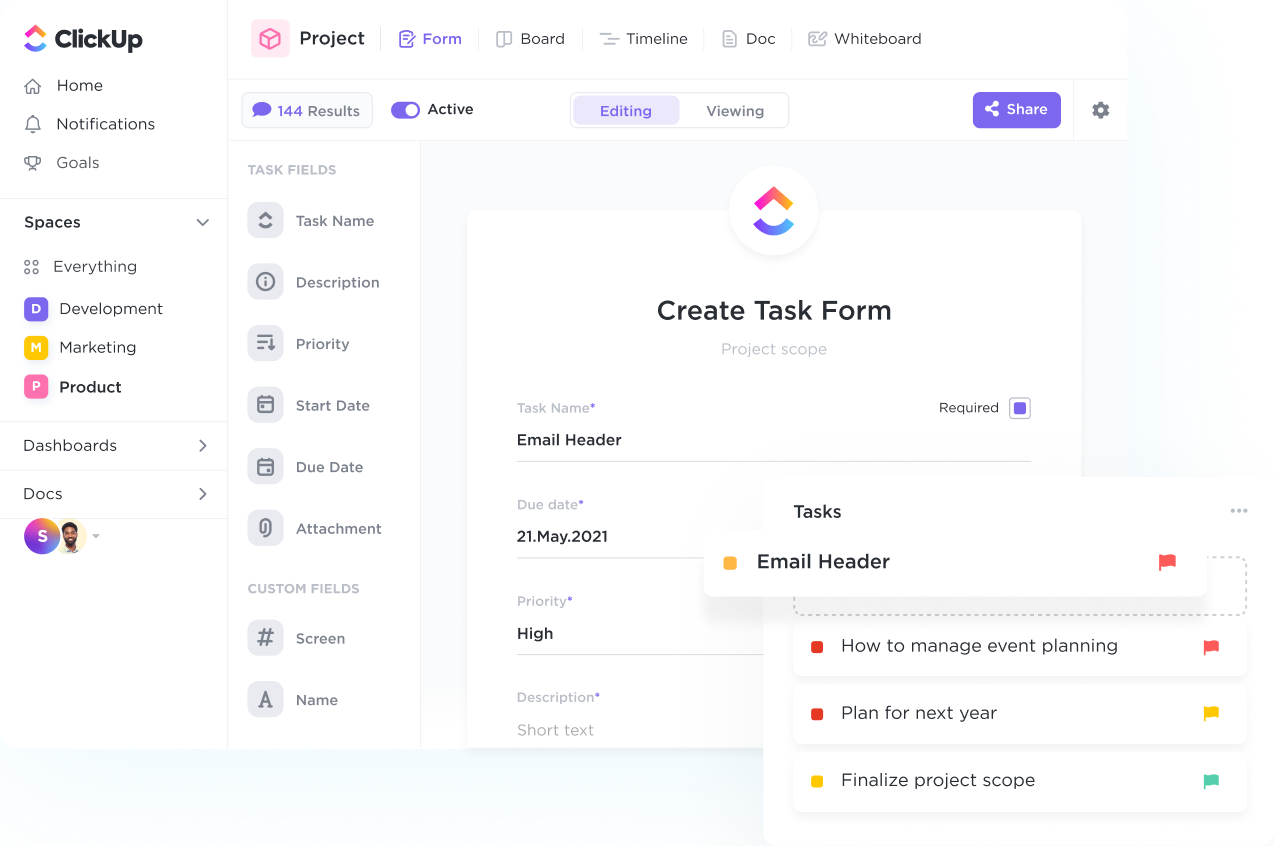Forms
Onboard customers and collect info in a snap.
Streamline your intake process, organize response data, and automatically create tasks with custom branded Forms powered by conditional logic.

Gantt Charts
Optimize your client relationships with ClickUp's customizable CRM system designed specifically for Consultants. Streamline your workflow, track interactions, and manage leads effortlessly all in one place. Empower your business with ClickUp and watch your productivity soar.
Free forever. No credit card.
Forms
Streamline your intake process, organize response data, and automatically create tasks with custom branded Forms powered by conditional logic.

Relationships
Create your ideal system to store and analyze contacts, customers, and deals. Add links between tasks, documents, and more to easily track all your related work.

A CRM provides a centralized database where consultants can store and access all client information, including contact details, project history, communication logs, and important documents. This eliminates the need for scattered notes and files, ensuring all team members have up-to-date information.
CRMs enable consultants to track all interactions with clients, including emails, calls, meetings, and notes. This helps in understanding client preferences, tracking progress on projects, and ensuring timely follow-ups, leading to better client relationships and satisfaction.
Consultants can use a CRM to create and track projects, assign tasks to team members, set deadlines, and monitor progress. This ensures that projects are completed on time, resources are allocated efficiently, and clients are updated on the status of their projects.
CRMs offer tools for time tracking and scheduling, allowing consultants to manage their time effectively. By tracking time spent on different tasks and projects, consultants can identify areas where they can improve efficiency and prioritize high-impact activities.
CRMs can automate the client onboarding process by setting up templates for contracts, welcome emails, and introductory materials. This streamlines the onboarding process, ensures consistency in communication, and frees up consultants' time to focus on delivering value to clients.
CRM software helps consultants by centralizing client information, tracking interactions, managing tasks and appointments, and providing insights for more personalized and tailored client communication.
Key features of CRM software beneficial for consultants include contact management, task and project tracking, lead management, email integration, and reporting capabilities. These features help consultants efficiently manage client relationships, track progress on projects, nurture leads, streamline communication, and analyze performance.
CRM software can provide consultants with valuable insights and analytics to track and measure their performance and success, allowing for data-driven decision-making and continuous improvement in client relationships and business outcomes.